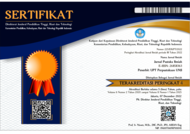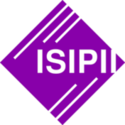Evaluasi Koleksi Tercetak Bidang Manajemen Menggunakan Metode Conspectus
Abstract
A quality library collection supported by adequate services serves to expand the scope of knowledge, enhance independent thinking skills, integrate knowledge with reality, and promote the improvement of the cultural quality of its users. This means that the collection functions to enhance the quality of student graduates and support the realization of UII as rahmatan lil’alamin. The depth level of the collection is clearly mapped so that development goals and targets can be achieved. The conspectus method is an appropriate method used to evaluate collections related to the conditions surrounding the Library Division of FBE UII. This qualitative research uses a list-checking approach with the conspectus method. The population is the collection of printed books in the field of management, with instruments such as conspectus profiles, conspectus worksheets, and interview guidelines. The assessment was conducted by two evaluators from the management department faculty members. The collection is mapped in numerical levels using a ten-point scale or continuum from 0 if the library does not collect collections in a particular subject to 5 for collections at a comprehensive level. The evaluation results indicate a gap in the collection level of 8 levels between the lowest and highest levels. The gap in the average level of collection depth is based on the current collection category with an acquisition commitment of 0.57, an acquisition commitment with a collection goal of 1.86, and a current collection with a collection goal of 2.43.
Keywords
Full Text:
PDFReferences
---. (2021). Melanjutkan Studi di Pascasarjana FE UII. Diakses 19 November 2023 dari https://fecon.uii.ac.id/program-pascasarjana/
Alansaari et al. (2022). Moderating Role of Supporting Work Environment on The Relationship Between Green Dynamics, Employee Learning and Commitment and Green Performance: A Case Of Public Firms in UAE. International Journal of Accounting, Finance and Business (IJAFB), 7(43), 21. https://doi.org/10.55573/IJAFB.074301.
Bernhardt et al. (2017). Roll with the Times, or the Times Roll Over You: Charleston Conference Proceedings. Purdue University. Diakses 9 Februari 2024 dari https://doi.org/10.5703/1288284316467
Duncan et al. (2015). Building Holistic and Agile Collection Development and Assessment. Performance Measurement and Metrics, 16(1), 62-85.
Ghony, M. D & Almanshur, F. (2020). Metodologi Penelitian Kualitatif. Ar-Ruzz Media.
Gregory, V. L. (2019). Collection Development and Management For 21st Century Library Collections: An introduction. ALA Neal-Schuman.
Johnson, P. (2014). Fundamentals of Collection Development and Management. The American Library Association.
Kamau, G. W., Elegwa, A. L. (2021). Factors influencing collection development process at the University of Nairobi Library. Library Management. Diakses 2 April 2024 dari https://www.emerald. com/insight/0143-5124.htm DOI 10.1108/LM-09-2020-0127.
Leon, R., et al. (2015). The Impact of Information Sources on the Quality Values Promoted in the Romanian Universities. Procedia Economics and Finance, 20(15), 342–349. https://doi.org/10.1016/s2212-5671(15)00082-9.
Ma’rifah, S. & Zulaikha, S. R. (2023). Tantangan Pengembangan Koleksi Pada Perpustakaan Universitas. Jurnal Pustaka Budaya, 10(1), 57–63. Diakses 26 Maret 2024 dari https://journal.unilak. ac.id/index.php/pb/Miles, M. et al. (2014). Qualitative Data Analysis: A Methods Ssourcebook. Sage.
Mulyana, D. (2018). Metodologi Penelitian Kualitatif: Paradigma Baru Ilmu Komunikasi dan Ilmu Sosial Lainnya. Remaja Rosdakarya.
Patel, S. (2016). Collection development in academic libraries. International Journal of Library and Information Science, 8(7), 62-67.
Pattee, A. S. (2020). Developing Library Collections for Today’s Young Adults: Ensuring Inclusion and Access. Rowman & Littlefield.
Saponaro, M. Z. & Evans, G. E. (2019). Collection Management Basics. Libraries Unlimited.
Snead, J. T. (2014). Public Libraries, Evaluation, and E-government. Library Quarterly: Information, Community, Policy, 84(4), 467-480. Diakses 27 Mei 2023 https://www.jstor.org/stable/10.1086/677782
Sugiyono. (2017). Metode Penelitian Bisnis: Pendekatan Kuantitatif, Kualitatif, Kombinasi, dan R&D. Alfabeta.
DOI: https://doi.org/10.20961/jpi.v10i1.84980
Refbacks
- There are currently no refbacks.

This work is licensed under a Creative Commons Attribution-NonCommercial-ShareAlike 4.0 International License.




.png)
.png)









1.jpg)
